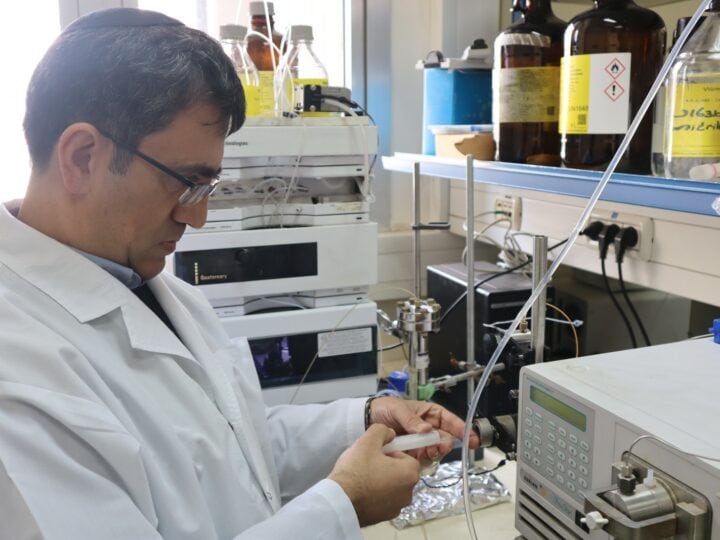Scientists from Bar-Ilan University have developed a new way to tackle the parasite that causes the African trypanosomiasis disease, also known as “sleeping sickness.”
The trypanosome parasite, found mainly in rural areas of Africa, is transmitted to humans or cattle by the tsetse fly. The disease causes fever, headache, itchiness, joint pain, confusion and poor coordination. It can be fatal if left untreated.
There is currently no vaccine for the disease, and available treatments are mostly ineffective due to the resistance of the parasite to existing drugs.
The new approach relies on damaging the ribosome of the trypanosome. The ribosome is the site of protein synthesis in the cell, and is made up of very long RNA sequences. Damaging production of the proteins in the parasite causes a delay in its growth and eventually its death.
The findings of the study, published in the Nature Communications journal, prove the possibility of designing RNA-based drugs that halt the development of the disease by targeting a specific site on the trypanosome ribosome.
The treatment would render the parasite’s ribosome unable to survive the heat differences between the tsetse fly and the human body, thereby preventing transmission of the disease.

These findings could also help in the development of treatments for other illnesses caused by parasites of the same family, such as the Leishmania parasite that causes the Rose of Jericho disease (leishmaniasis).
The research was conducted by the team of Prof. Shulamit Michaeli from the Goodman Faculty of Life Sciences at Bar-Ilan University in collaboration with the team of Nobel Prize laureate Prof. Ada Yonath of the Weizmann Institute of Science. The study was partially funded by a grant from the Israel Science Foundation.
“This development is exciting because it connects the role of a single modification to the ribosome structure and its function in producing new proteins,” said Michaeli.
Fighting for Israel's truth
We cover what makes life in Israel so special — it's people. A non-profit organization, ISRAEL21c's team of journalists are committed to telling stories that humanize Israelis and show their positive impact on our world. You can bring these stories to life by making a donation of $6/month.









